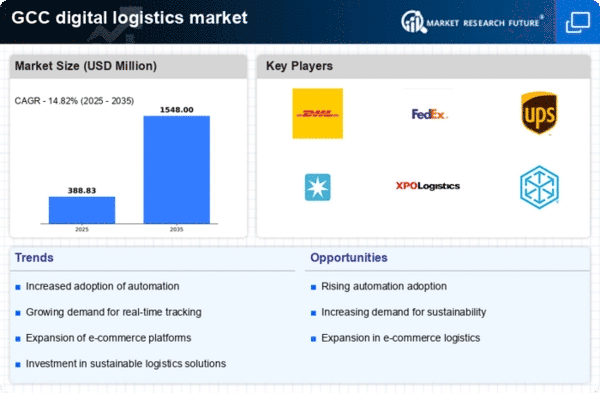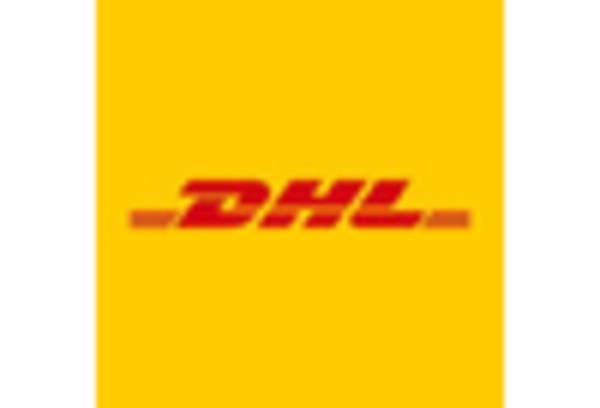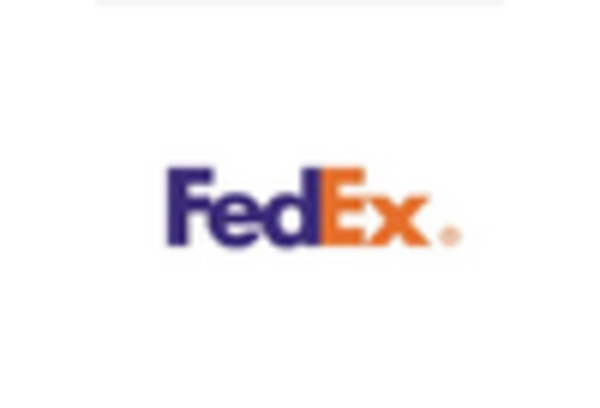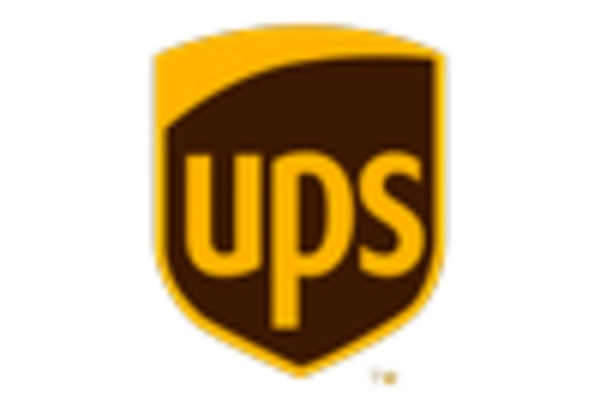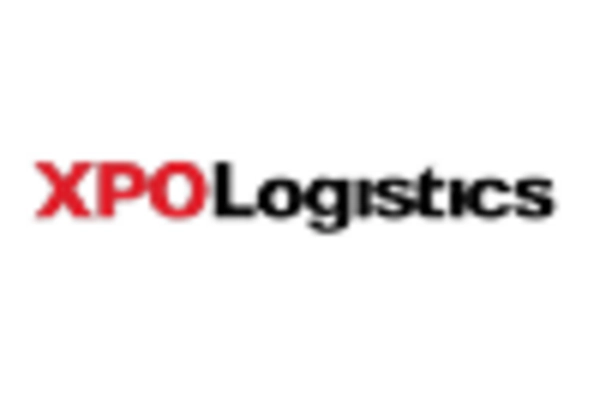Technological Advancements in Logistics
The digital logistics market is experiencing a surge in technological advancements, particularly in automation and artificial intelligence. These innovations streamline operations, enhance efficiency, and reduce costs. For instance, the integration of AI-driven analytics allows companies to optimize supply chain management, leading to improved delivery times and customer satisfaction. In the GCC, investments in technology are projected to reach $10 billion by 2026, indicating a robust growth trajectory. This trend not only enhances operational capabilities but also positions businesses to respond swiftly to market demands, thereby driving the digital logistics market forward.
E-commerce Growth and Consumer Expectations
The rapid expansion of e-commerce in the GCC is significantly influencing the digital logistics market. As online shopping becomes increasingly popular, consumer expectations for fast and reliable delivery services are rising. In 2025, e-commerce sales in the region are expected to surpass $30 billion, necessitating efficient logistics solutions. Companies are compelled to adopt digital logistics strategies to meet these demands, including real-time tracking and flexible delivery options. This shift not only enhances customer satisfaction but also drives competition among logistics providers, further propelling the digital logistics market.
Rising Demand for Supply Chain Transparency
In the digital logistics market, there is an increasing demand for supply chain transparency among consumers and businesses alike. Stakeholders are seeking greater visibility into the logistics process, which is driving the adoption of digital tools that provide real-time tracking and data sharing. This trend is particularly pronounced in the GCC, where businesses are investing in technologies that enhance transparency and accountability. As a result, logistics providers are compelled to implement digital solutions that not only improve operational efficiency but also build trust with customers, thereby fostering growth in the digital logistics market.
Sustainability and Green Logistics Practices
Sustainability is becoming a pivotal concern in the digital logistics market, particularly in the GCC region. Companies are increasingly adopting green logistics practices to minimize their environmental impact. This includes the use of electric vehicles, optimized routing to reduce fuel consumption, and sustainable packaging solutions. As consumers become more environmentally conscious, businesses that prioritize sustainability are likely to gain a competitive edge. The market for green logistics solutions is projected to grow by 15% annually, indicating a strong shift towards eco-friendly practices in the digital logistics market.
Government Initiatives and Regulatory Support
Government initiatives in the GCC are playing a crucial role in shaping the digital logistics market. Policies aimed at enhancing infrastructure and promoting digital transformation are fostering a conducive environment for logistics companies. For example, the UAE's Vision 2021 emphasizes the importance of innovation in logistics, which is expected to attract investments exceeding $5 billion in the sector. Regulatory support for digital platforms and e-commerce is also encouraging businesses to adopt advanced logistics solutions. This supportive framework is likely to accelerate the growth of the digital logistics market in the region.


